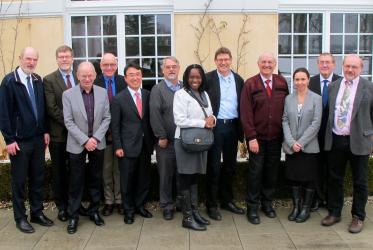Displaying 841 - 860 of 1058
WCC condemns terror attack in Kenya
03 April 2015
Religious leaders urge a ban on fully autonomous weapons
02 April 2015
WCC condemns atrocities by the “Islamic State” in Syria
25 February 2015
Faith organizations assess COP 20 on the way to Paris
28 January 2015
Annual meeting between officials of WCC and PCID
23 January 2015
WCC condemns attacks on churches in Niger
22 January 2015
Christians around the world pray for unity
22 January 2015
KAICIID secretary general and officials welcomed at WCC offices
14 January 2015
WCC expresses shock over killings in Nigeria
12 January 2015
WCC condemns Paris slayings
07 January 2015
Momentum builds for ban on nuclear weapons
16 December 2014







